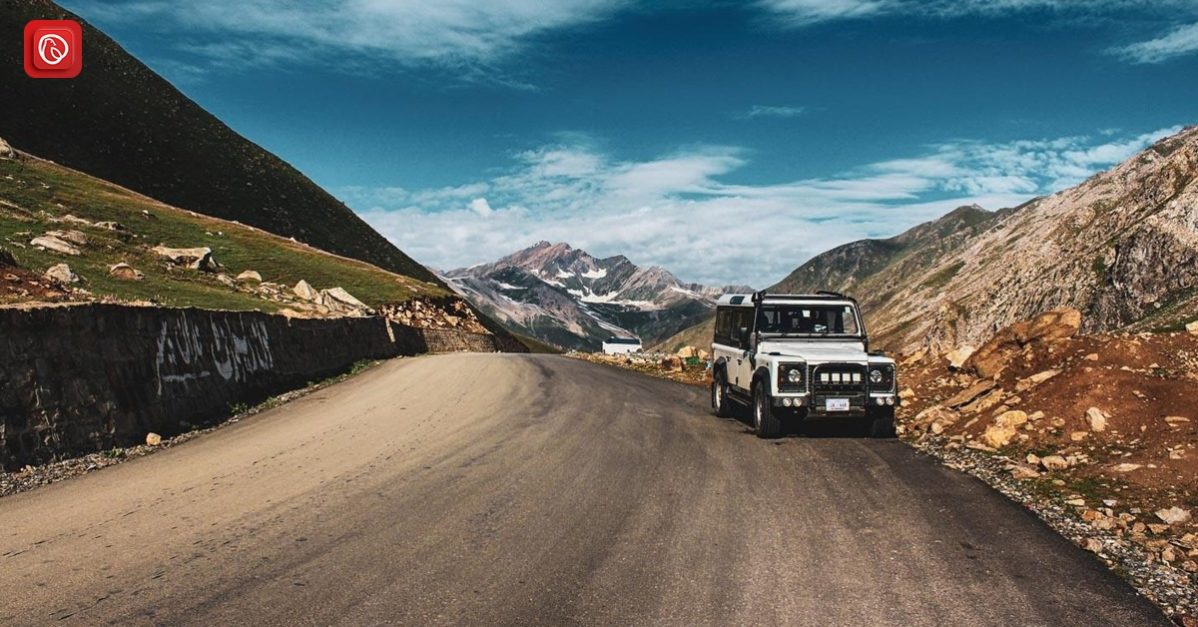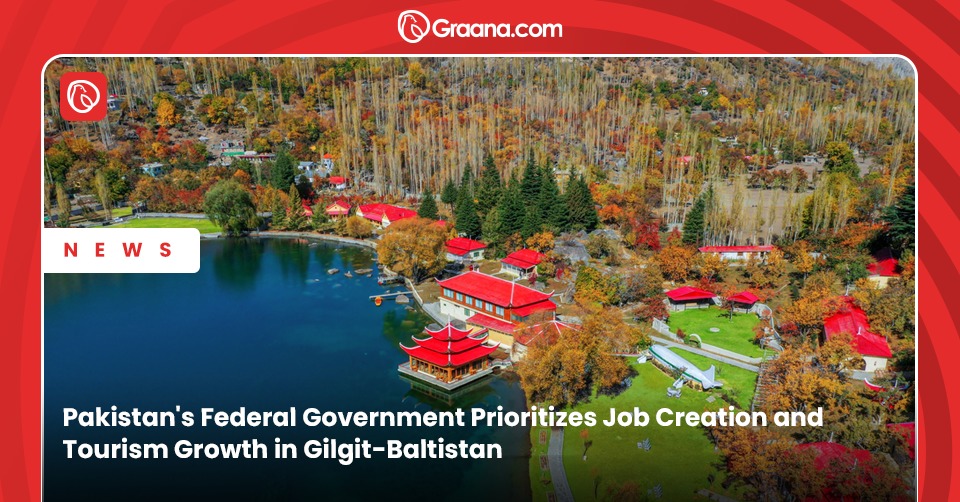Astore Valley is famed for its rich natural splendour and proximity to the world’s most remarkable mountain attractions. Sitting at an elevation of 2600 metres, this picturesque mountain village offers convenient access to essential services, communication networks, and typical commercial facilities.
Beyond its breathtaking beauty, the valley’s terrain boasts remarkable diversity and contrasts, offering intrepid travellers an array of trekking possibilities and an immersive cultural encounter that remains relatively unexplored by most tourists.
Graana.com has prepared a tourist guide for anyone planning to visit Astore Valley anytime soon. This guide will discuss many aspects of the place, including its weather, culture, attire, ideal time to visit, places to visit, and much more.
Overview
Astore, a 120-kilometre-long valley with an area of 5,000 square kilometres, is situated in the northern region of Pakistan, within the state of Gilgit-Baltistan. Positioned on the eastern slope of Nanga Parbat, a towering peak measuring 8,125 metres in height, it has earned the moniker of the Killer Mountain due to its reputation as one of the most perilous summits to conquer globally.
History
The historical significance of Astore within the region of Gilgit Baltistan is profound. Over centuries, the people of Gilgit used the Astore road as a vital trade route, fostering commercial ties with Kashmir for trade and educational pursuits, particularly importing Kashmiri textiles.
Across generations, the influx of travellers through Astore has contributed significantly to the linguistic and cultural diversity of the region. According to the Imperial Gazetteer of India, it is documented that around 1600, a Persian adventurer named Ghāzī Mukhpun reportedly married a princess from the ruling family of Skardu.
Their four sons went on to become the chiefs of Skardu, Astor, Kharmang, and Rondu, with the families of the present chiefs tracing their ancestry back to these lineages. Notably, the sons of Astor, named Afzal, Chilma, and Guada, resided in Juttay, Ganda gam (Arzalabad), Chilm (Chilmabad) and Gudai (Guadabad), respectively.
Astore Valley Weather
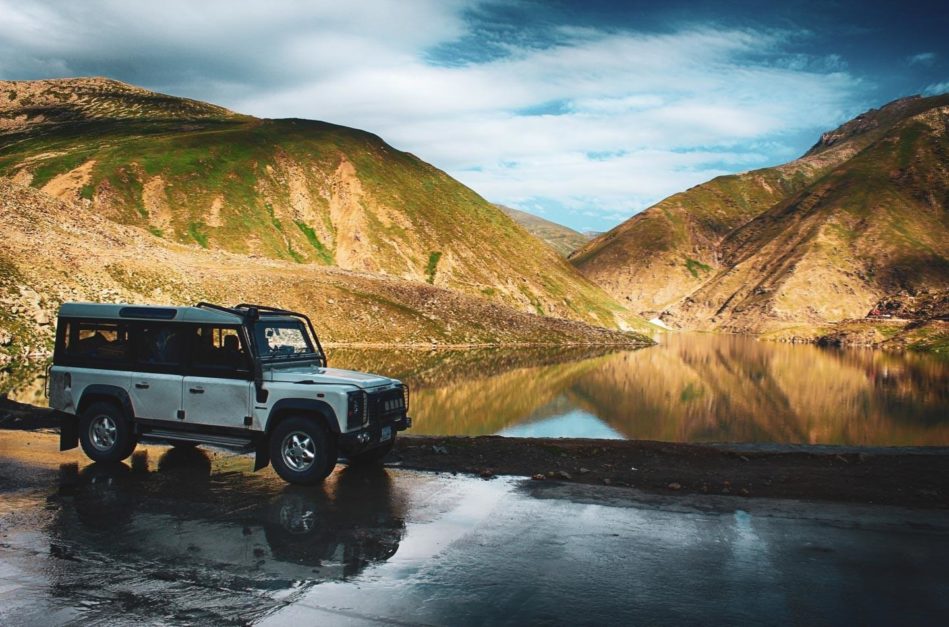
Astore generally maintains a chilly yet moderate climate, characterised by notable precipitation even during the least rainy periods. The valley enjoys agreeable summers, typically ranging from 21°C to 8°C.
Conversely, winters bring about cold, snowy conditions, with temperatures dropping as low as -4.5°C. Based on available data, Astore registers an average annual temperature of 8.4°C and an annual precipitation of 427 mm.
Culture
The residents of Astore hold music and art in high regard, often showcasing their cultural heritage through musical performances featuring instruments such as the Sitar, Rabab, Duff, Damal, Surnai, and Gabi during weddings, festivals, and various celebratory events.
Due to the phonetic nature of the Shina language, historical literature or poetry from the valley could be more present. Instead, local singers and artisans preserve the region’s traditions by orally transmitting traditional songs and folk tales.
Attire
The traditions of Astore Valley find their sole practice in Gilgit Baltistan, where the local community holds their cultural and religious values in the highest esteem.
In Astore, men commonly attire themselves in Salwar Kameez along with a traditional Gilgiti cap. Conversely, women adorn intricately embroidered Kameez Shalwar, complemented by centuries-old silver jewellery embedded with precious stones. Some young girls also opt for the timeless Iraghi Cap with Silver Touch, paired with loose Trousers or Phirwal and a tunic known as Kurtani, Dupatta, or Shawl.
When to Visit Astore
Astore’s true beauty reveals itself usually from June through September, marking the prime season to explore the valley. Presently, it stands as the opportune moment to plan a visit, as venturing there during other times is perilous due to the region’s harsh climate. Winter, in particular, brings the looming threat of intense rainfall, heavy snowfall, and hazardous landslides, rendering access to this picturesque destination highly challenging.
Hotels in Astore
The best lodging option for tourists is the splendid PTDC Motel in Rama, renowned for its exceptional facilities. Additional accommodation alternatives are listed as follows.
Rama Midway Guest House
With its round-the-clock room service, complimentary Wi-Fi, dry cleaning facilities, and an on-site restaurant, Rama Midway is a must-visit spot during your stay in Astore. The accommodation also offers free parking and a delectable breakfast, which is cooked on order, at no additional cost.
Fairy Meadows Inn
Fairy Meadows Inn in Astore is a standout lodging option, offering a garden, terrace, free Wi-Fi, TV, an on-site restaurant, and daily room cleaning services. Each guest room in this hotel is furnished with high-quality bedding, ensuring a comfortable stay.
Astore Inn Hotel and Restaurant
Astore Inn Hotel & Restaurant offers guest rooms with separate seating and dining areas. With 24-hour services of a front desk, laundry facilities, television, an in-house restaurant and, this hotel in Astore provides a range of convenient amenities.
Wazir Guest House in Astore
Offering a terrace and garden, this guest house in Astore presents a perfect accommodation choice during your visit to Astore Valley. The guest house provides complimentary parking, while in the morning, guests can enjoy a continental breakfast served by the hotel.
Rafsal Guest House
The Guest House boasts both a terrace and a garden, while every room comes equipped with a balcony. Additionally, amenities at this hotel include a front desk (24 hours), television, and free parking. At Rafsal, guests can indulge in a continental breakfast each morning.
Places to Visit In Astore Valley
The beautiful green valleys and meadows of Astore Valley are famous for their charm. Here are the primary attractions in Astore Valley:
Nanga Parbat
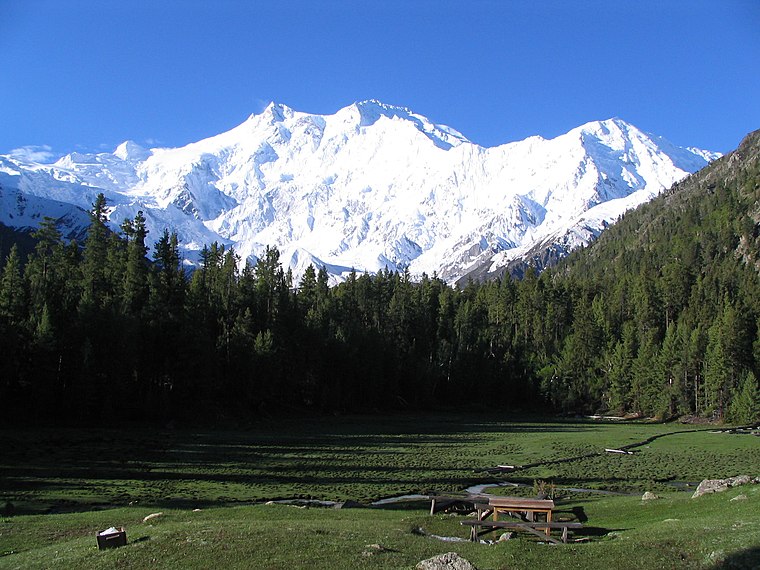
This huge mountain is located in the district of Diamer in Astore, standing tall at the height of 8,126 metres above sea level, securing its place as the world’s eighth-highest peak and Pakistan’s second-highest peak after K2.
Nanga Parbat is the western link of the Himalayan range. With its strikingly steep summit that surpasses its neighbouring peaks, it is locally referred to as Diamer, signifying a ‘big mountain.’ Nanga Parbat has earned the nickname “Killer Mountain” due to its formidable mountaineering reputation.
Deosai Plateau
This plateau, Deosai, often called “The land of Giants,” stands as the world’s second-highest plateau, soaring to an elevation of 4,114 metres above sea level. Encompassing 3,000 square kilometres of total area, it boasts breathtaking beauty and serves as a habitat for Ibex, snow leopards, wild horses, brown bears, and Tibetan blue bears.
The stunning Shausar Lake further enhances its natural charm. The Deosai plains can be reached via a safari vehicle from Gudai, Gorikot, and Chilum or through a trail, with accessibility from Skardu.
Domel
Located in the Minimarg Valley of Astore along the trade route connecting Srinagar and Gilgit, Domel is positioned at an altitude of 2845 metres. The region is adorned with grand mountains adorned in a dense pine forest, verdant foliage, and a natural lake famously dubbed “Crystal Lake.” This lake shares a connection with Rainbow Lake, with the water in Crystal Lake derived from the melting of winter mountain ice.
Rama Meadows
Rama, an exquisite tourist spot in Astore, is renowned for its scenic charm. The meadow within Rama is celebrated as one of Pakistan’s most stunning locations. Rama Meadows proves to be an ideal destination with its lush green meadows, alpine trees and shrubs, a pristine lake, and breathtaking mountain vistas.
Rama Lake
Located in Rama Valley, Rama Lake is a stunning body of water approximately 42 kilometres from Astore. Travelling from Fairy Meadows to the lake via the Karakoram Highway typically takes 2 to 3 hours. The environs of Rama Lake are teeming with diverse medicinal herbs and sightings of ibex, rock partridge, musk deer, and snow leopards. The optimal season for visiting the lake is during the summer months.
Rainbow Lake
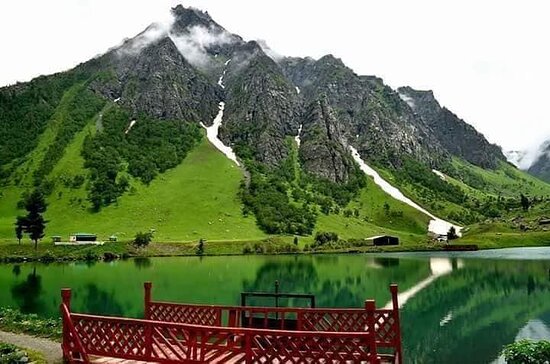
En route to Domel, a small settlement, Nagai, comprises quaint wooden huts nestled within a forested landscape. The village’s prized possession is the remarkably stunning Rainbow Lake, renowned for its pristine, colour-shifting waters that reflect the purity of its surroundings. Fed by nearby springs and streams, the artificial Rainbow Lake remains a sight to behold.
Activities
Some of the best activities that you can do are:
- Trekking
- Mountaineering
Trekking
Astore Valley presents numerous exciting opportunities for hikers, catering to a spectrum of experience levels, from leisurely walks to demanding technical expeditions. Prominent trails favoured by trekkers include the path to Rama Lake and pastures, the hike from Tarishing to Fairy Meadows via Mazeeno Pass, the round trip from Tarishing to Rupal, the Astore to Skardu trail passing through the Deosai Plateau and Banak Pass, the route from Minimarg to Domel and Chotta Deosai, and the Kamri to Taobut trail in Neelam Valley, alongside various other well-known routes.
Mountaineering
In Astore Valley, all climbing endeavours revolve around the Nanga Parbat massif. For climbers seeking to conquer the world’s eight-thousanders, the formidable challenge posed by Killer Mountain remains unparalleled. The Chongra and Rupal peaks, alongside various other climbing opportunities, serve as the primary attractions for climbers within the Astore Valley.
How To Reach Astore From Islamabad
The most common and preferred options to reach are by road and air.
By Road
On a daily basis, various transportation companies operate commuter buses and vans from Rawalpindi to Astore, with the journey lasting between 18 to 24 hours. Alternatively, the 112-kilometre trip from Gilgit to Astore via local buses typically spans about 4 hours. Astore is accessible via alternate routes from Naran Valley, Kaghan Valley, Skardu, Dasu, and Kohistan as well.
The Gilgit to Astore road can become blocked due to landslides or heavy snowfall. Conversely, the pathway from Raikot Bridge to Astore Valley is a paved road suitable for travel using well-maintained cars and jeeps.
By Air
Two aeroplanes of PIA from Islamabad arrive in Gilgit Baltistan daily, with each flight taking less than an hour to finish the journey. From Gilgit, Astore is accessible via a 98.2-kilometre route that typically requires four to five hours of travel time.
Astore Tour Packages
Despite short distances, the road condition limits automobiles to an average speed of 10 km per hour. For an optimal experience of the valley, a minimum stay of four days is recommended when travelling by Jeep. If using public transportation, allocating an additional 2 to 3 days is advisable.
Various travel agencies provide 5 to 6-day tour packages for this picturesque valley. These packages generally encompass pick-up, full transfers, drop-off services, and private conveyance from the airport of Gilgit via Corolla Xli with fuel costs covered, a designated driver, and hotel accommodations suitable for 2-3 individuals, continental breakfast provided daily, comprehensive sightseeing tours of Rama, Astore, and Gilgit Valleys.
Frequently Asked Questions (FAQs) About Astore Valley
Here are some commonly asked questions about the valley and their answers.
Q: Where is Astore Valley located?
A: Astore Valley is located in Gilgit-Baltistan, Pakistan. It is a 120 km long valley with an area of 5,000 sq km.
Q: What is the best time to visit Astore Valley?
A: The best time to visit Astore Valley is during the summer months, from May to September. The weather is pleasant during this time, with temperatures ranging from 21°C to 8°C. However, the valley can be visited year-round, with different activities to enjoy in each season.
Q: How do you get to Astore Valley?
A: The best way to get to Astore Valley is by car or jeep. The drive from Islamabad takes around 10-12 hours. There are also public buses and vans that operate from Islamabad and Gilgit to Astore.
Q: Where to stay in Astore Valley?
A: There are a number of hotels and guesthouses in Astore Valley, ranging from budget-friendly to luxury options. Some of the most popular places to stay include:
- Astore Paradise Hotel
- Rama Lake Hotel
- Minimarg Hotel
- Rupal Hotel
- Deosai Plains Hotel
Q: What are the top things to do in Astore Valley?
A: Astore Valley has a lot to offer visitors, including:
- Trekking: There are a number of trekking trails in Astore Valley, ranging from easy to difficult. Some of the most popular trekking destinations include Rama Lake, Deosai Plains, Minimarg, and Rupal.
- Camping: Astore Valley is a great place to go camping, with its stunning scenery and clean air. Some of the best places to camp include Rama Lake, Deosai Plains, and Minimarg.
- Fishing: Astore Valley is home to a number of rivers and lakes where visitors can go fishing. Some of the most popular fishing spots include Rama Lake, Deosai Plains, and Minimarg.
- Sightseeing: Astore Valley is home to a number of historical and cultural sites, including the Astore Fort, the Eid Gah Mosque, and the Ramkot Pass.
- Wildlife watching: Astore Valley is home to a variety of wildlife, including snow leopards, brown bears, and ibex. Visitors can go on wildlife safaris or simply keep an eye out for wildlife while trekking or camping.
Q: What is the culture of Astore Valley?
A: The people of Astore Valley are mostly Muslim and speak the Balti language. They are famous for their hospitality and traditional way of life.
Q: What are the tips for travelling to Astore Valley?
A: Here are some tips for travelling to Astore Valley:
- Be prepared for all types of weather, as the weather in Astore Valley can change quickly.
- Pack sturdy shoes and comfortable clothing, as you will be doing a lot of walking.
- Bring sunscreen, sunglasses, and a hat to protect yourself from the sun.
- Drink plenty of water to stay hydrated.
- Be respectful of the local culture and customs.
For more related information, visit Graana Blog.
